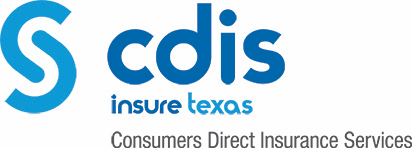Original Medicare (Part A and Part B) does not include benefits for Part D or prescription drugs. And while you are not required to have Medicare drug coverage, if you need it, there are only two ways to get it—purchase a stand-alone Part D plan to add to Original Medicare or get it as part of a Medicare Advantage plan.
Enrollment in Part D is voluntary, unless you receive benefits from Medicaid, in which case, you are enrolled automatically. Here’s a look at a few of the costs associated with Part D coverage premiums, deductibles, copays, and more that can help you make an informed decision when it’s time to choose.
Costs for Medicare Drug Coverage-Part D
If you choose to purchase a Medicare Prescription Drug plan separately to add to your Part A and Part B coverage, you should expect to pay for a few different things.
Monthly Premium. There is a monthly premium for drug benefits that are in addition to your Part B premium. The exact amount varies and is based on the plan you choose. High-income Medicare beneficiaries can also expect to pay an income-related monthly-adjusted amount, in addition to the premium. However, most seniors pay only the standard premium. Note: if you do not sign up for Part D coverage when you are first eligible, you may have to pay a late enrollment penalty.
Deductible. In addition to a premium, most Part D plans include a yearly deductible. The good news is, there is a maximum deductible amount—a limit to how much you pay out-of-pocket before your Medicare drug plan starts contributing. Medicare pays close to 75 percent of your prescription drug costs. Note: there are some Part D plans that offer “first dollar coverage”, meaning you do not pay a deductible, and coverage starts immediately.
Copayments and Coinsurance. While your Medicare Prescription Drug plan will likely pay for a good amount of your medications, you are responsible for the remaining amount, which is called copayment or coinsurance. Medicare standards ensure that copayments are no more than 25 percent of the full cost of a prescription, and plans are required to pay no less than 75 percent. In some cases, copayments are waived completely.
Copayments for prescriptions may be waived if:
- You live in a long-term care nursing facility and are enrolled in both Medicare and Medicaid.
- Your Part D plan waives the copayment for certain drugs.
- Your pharmacy opts to waive the copayment for specific drugs.
The Coverage Gap The coverage gap is a little different. Once you and your plan reach a predetermined amount for prescription drugs, you enter the coverage gap, or “donut hole”. Medicare stops paying while you are in the gap, leaving you responsible for 100 percent of your medication cost. However, once you reach catastrophic levels, Medicare pays for 95 percent of your medication cost.
What You Need to Know
Understanding the costs surrounding Part D drug coverage can be complicated. Here is an easy summary with just the facts.
- Enrollment in Part D is voluntary unless you receive Medicaid benefits.
- There are only 2 ways to get prescription drug benefits: a Part D plan or Medicare Advantage.
- Most Part D plans include a monthly premium, deductible, copayments, or coinsurance and costs while in the donut hole.
Remember, different Medicare drug plans have different rules. Some require prior authorization from your doctor before certain medications can be filled. Others impose limits on how much medication you can get at one time. And in some cases, certain plans require you to try lower-cost drugs before a prescribed drug will be covered. In addition, each plan’s formulary, or list of covered drugs may be different. Be sure to look carefully at the plan you choose to make sure any medications you use regularly are on the list and your preferred pharmacy is a participating pharmacy.
References:
https://www.medicare.gov/part-d/costs/part-d-costs.html
https://www.medicare.gov/part-d/coverage/rules/drug-plan-coverage-rules.html
https://www.medicare.gov/sign-up-change-plans/get-drug-coverage/get-drug-coverage.html
http://www.kff.org/medicare/fact-sheet/the-medicare-prescription-drug-benefit-fact-sheet/
MUC58-2017-BCBS


